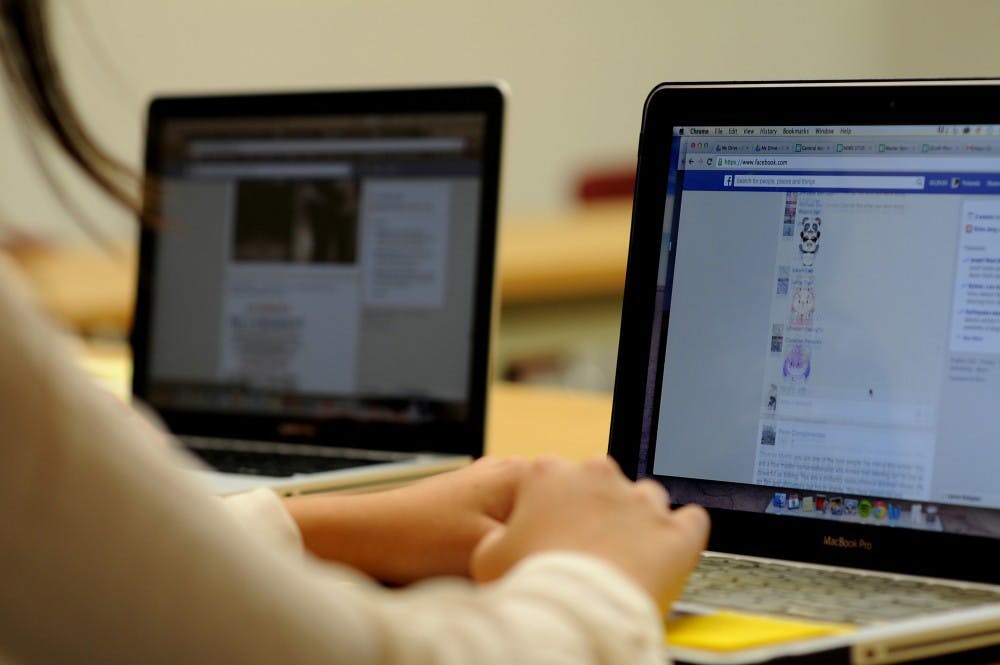
Different professors institute varying laptop policies for their classes; most professors cite increased productivity as their reason.
Credit: Konhee ChangAs students rely increasingly on technology, some professors are growing stricter about laptop use in their classes.
Many Penn students enjoy using laptops in classes to take notes because typing is faster than writing by hand, notes are easier to organize electronically and laptops make it easier to access articles or PowerPoint slides while they are referenced in class. But laptops can be distracting, and increasingly, many professors have begun to introduce laptop policies that determine when laptops can be used or whether they can be used at all.
Some professors have a complete no-laptop policy. Marketing professor Keith Niedermeier enforces a strict “no electronics policy,” so no laptops, phones or tablets are permitted in his Marketing 101 class.
“I got pretty consistent complaints that people were distracted by other people on computers either by their typing during class or by people not doing the classwork,” Niedermeier said. “I had my TAs, who generally sit in the back of Marketing 101, do a survey of how many people were taking notes and hitting the links that I was talking about versus doing other things, and that proved to me that the computers were more of a distraction than a help.”
Though Niedermeier has about 425 students every year in his Marketing 101 course, he says he receives only two or three complaints per year. He added that though some students like it and some don’t, many acknowledge that the policy helps them feel less distracted.
Communications professor Amy Jordan also enforces a laptop policy. Instead of completely barring laptop use in classes, she splits the class up into two sections to accommodate students’ needs: students using laptops sit on one side of the room and students writing notes by hand sit on the other.
Jordan created a laptop policy for the first time in fall 2015 after she read recent research showing that a student’s multitasking can have significant effects on the learning of other students. Research shows, she said, that multitasking is much more distracting for students who can see the multitasking student than it is for the student who is actually multitasking.
College freshman Julia Pan explained that although students think that typing up notes is more effective, she agrees that writing them out helps with comprehension and processing.
“I think psychologically we feel that we take notes more effectively on our computers because we are able to capture more information directly from the slides, while oftentimes for handwritten notes I end up missing some of the stuff that’s said in lecture,” Pan said. “But when I take notes on computer, I often go on autopilot and don’t understand anything I have written down.”
Even though students aren’t always comfortable parting with their laptops, Neidermeier said his policy adds to his own teaching experience as well as the students’ learning experience.
“I think it’s something that aids in learning and even though people are not initially comfortable with it, I feel it’s a good thing for them,” he said. “In terms of my enjoyment in teaching this class, it’s so much better to have eyes facing the front and having some mental engagement rather than having people just behind a computer screen.”
The Daily Pennsylvanian is an independent, student-run newspaper. Please consider making a donation to support the coverage that shapes the University. Your generosity ensures a future of strong journalism at Penn.
DonatePlease note All comments are eligible for publication in The Daily Pennsylvanian.





